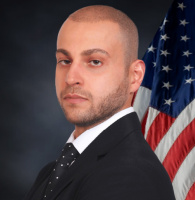Cook County, IL White Collar Crime Lawyers
Sponsored Law Firm
-
 x
x

Click For More Info:
-
LaPapa Law Group
10704 S Western Ave Chicago, IL 60643» view mapAccident & Injury Law, Criminal Defense Changing Lives One Case At A Time
At LaPapa Law Group, we understand that life doesn’t always go as planned. We have the knowledge and experience needed to competently represent you in court.
800-694-2681
Hal M. Garfinkel
✓ VERIFIED *Status is reviewed annually. For latest information visit hereHave you been investigated for or charged with a serious criminal offense such as homicide, drug charges or a gun crime? Are you seeking experienced, ... (more)
Stephen Komie
✓ VERIFIED *Status is reviewed annually. For latest information visit hereStephen M. Komie, the esteemed founder of Komie and Associates, brings over four decades of robust experience in defending clients across state, feder... (more)
Khaled Issa
Khaled Issa is a well-versed trial attorney with more than 10 years of legal experience. Knowledgeable in many areas of law, Attorney Issa concentrate... (more)
James F. Diquattro
Our offices concentrate on practicing criminal defense for individuals facing charges of felonies and misdemeanors at both the state and federal level... (more)
 Gregory R. LaPapa Chicago, IL
Gregory R. LaPapa Chicago, IL Practice AreasExpertise
Practice AreasExpertise



